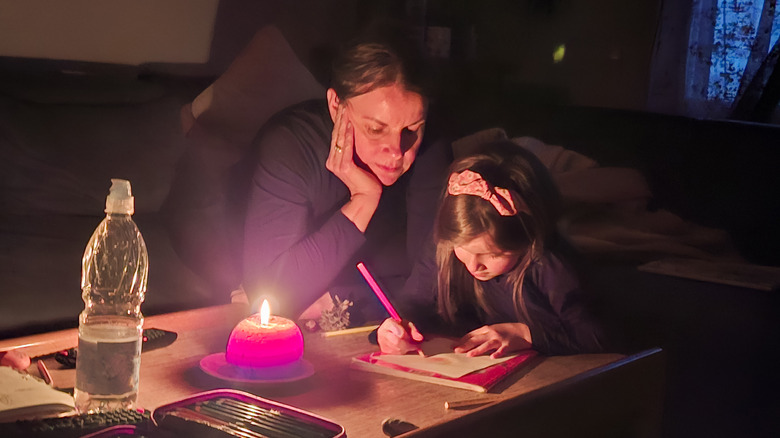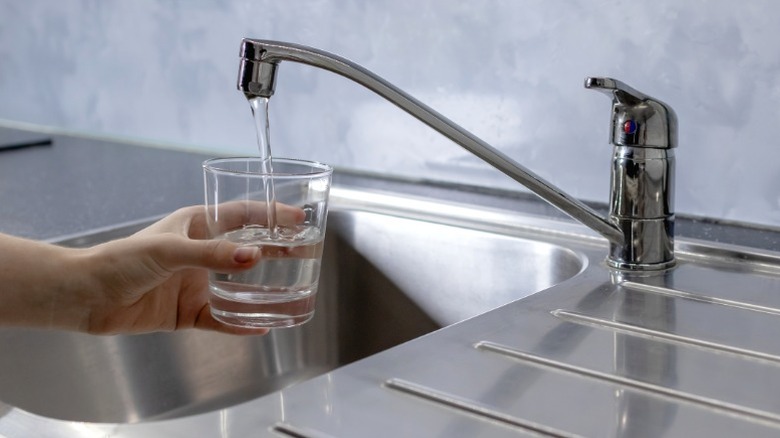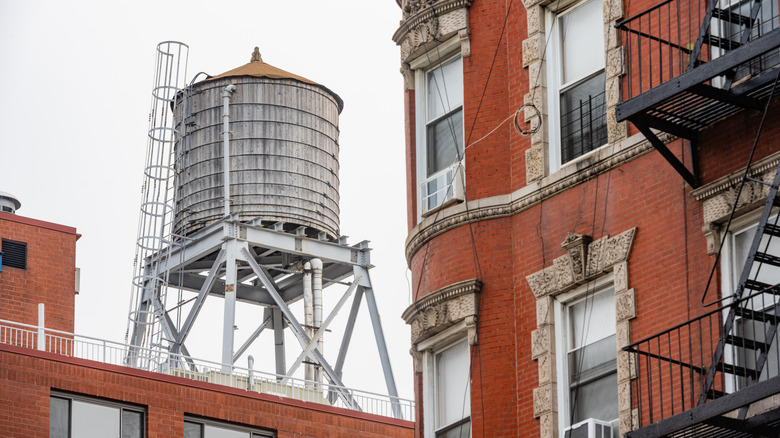Can You Still Run Water During A Power Outage?
When bad weather is in the forecast, you'll often want to take steps to prepare for a severe storm. Severe weather is one of the leading causes of power outages, although equipment failure, human error, and scheduled maintenance could be to blame in many instances. You might already prepare for power outages by keeping mobile devices charged and having batteries, flashlights, and candles in a convenient location, but knowing what you can and can't do around the house without power is critical. For example, you shouldn't open the refrigerator unless absolutely necessary to keep its interior temperature from fluctuating and dropping when power isn't available. And alongside your food storage situation, your home water supply's availability is crucial to understand and plan around should the power go out.
Whether your water will work without electricity depends on the circumstances you have at your home or apartment. Homeowners who rely on municipal water supplies should have access to adequate running water during temporary outages. Many common plumbing systems and basic appliances don't require electricity for operation, such as toilets, showers, and faucets. However, residences that rely on electrically powered pumps might be unable to use their supplies. Pressure-generating booster pumps are common in apartment buildings, hotels, and similar types of multi-story buildings, for example. Rural homes may also have private wells that use electrical submersible pumps to bring the water from dozens or hundreds of feet below ground, relying on power to do so.
Why running water works during power outages in some homes
If your municipal water supply is elevated, such as by using a water tower, gravity will feed the system, meaning you wouldn't necessarily need power to receive water. However, some cities must install electric pumps throughout the supply system to feed homes at higher elevations. If so, the city probably has backup generators that keep the pumps running and supplying water to your home. However, you shouldn't expect the municipality supply to run indefinitely. Most water tower supplies will run out within six to 12 hours after the power goes out, and the city won't be able to pump more into the tower without electricity available.
Even though you may have running water in your house without electricity available, you might worry about your sewer system. Can you flush your toilet during a power outage? Many homes have a gravity-fed sewer system, so if you have water service, you should be able to flush the toilet. A gravity-fed sewer uses pipes with a slight downward slope that naturally allows wastewater from the toilet to flow into the city sewer line with no electricity required. However, if your toilet waste needs to be lifted to reach the main sewer line, you may have an ejector pump installed that runs on electricity.
Keep in mind that if the power is out during cold weather, you should be cautious about how you use water. Without a working home heater during a winter power outage, you could harm the plumbing in your house if you don't maintain a slight water trickle in your homes faucets. If stagnant water remains filling the pipes, they might freeze and burst.
Situations where water might not be available without power
About 15% of Americans use private wells for their drinking water supply, most of which require pumps to bring the water out of the ground. You might have a jet pump that's installed at ground level to use suction to pull water from below the ground. Other people have a deep submersible pump that sits at the bottom of the well casing and pulls water upward. Most of these systems use a pressure tank that stores anywhere between five to a few hundred gallons. The tank does not require electricity to work. After the power goes out, your system will use what's stored in the tank. However, the tank won't be able to refill itself, meaning you'll run out pretty quickly if you have a low-capacity unit. You potentially could run the submersible or jet pump from a generator, allowing it to continue to supply water in an outage. Solar-powered water pumps is another potential option for a rural property.
An apartment connected to a municipal supply usually doesn't have enough pressure to send water to all the individual units without help. Most apartments use a booster pump that uses electricity to create the pressure needed to pass water to upper-floor apartments. To avoid losing the pressure needed during a power outage and to keep water flowing to individual units, some apartment buildings might install a storage tank on the roof to gravity feed the units.


